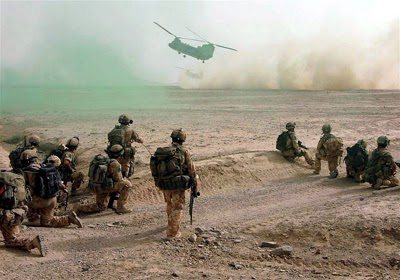NATO foreign ministers have tackled the problem of Afghanistan’s future after the alliance withdraws its troops in 2014. Germany has warned of possible chaos after the end of the combat mission.
At the NATO talks in Brussels Wednesday, Germany’s Foreign Minister Guido Westerwelle emphasized the need for a successful handover of security by 2014.
“We don’t want Afghanistan to fall back into chaos, in a power vacuum, where terrorists and terrorism can thrive. This has to do with Afghanistan having a reliable perspective also after 2014,” Westerwelle said.
“Withdrawing combat troops – that sounds easier than it really is to implement logistically, technically, militarily and, by the way, also politically,” Westerwelle added.
Germany is the third largest contributor of troops to the international mission in Afghanistan, with around 4,300 Bundeswehr soldiers currently in the country.
The NATO-led security mission in Afghanistan has been fighting an insurgency ever since the United States led an invasion of the country in 2001 to oust the Taliban regime there. The regime was suspected of harboring the late al Qaeda leader Osama bin Laden.
Problems with corruption
However, NATO Secretary General Anders Fogh Rasmussen expressed satisfaction with the way things are going in Afghanistan.
“Our mission in Afghanistan continues to make progress,” Rasmussen said, adding that Afghanistan could rely on there being financial aid and outside training for security forces even after the troop withdrawal by the end of 2014.
At the same time, Rasmussen urged Afghanistan to tackle the problem of corruption, saying it also posed a security risk to the country.
“Corruption is theft from the people, it’s a crime. It must be fought determinedly,” he said.
“There is also a security aspect, because long-term peace and stability are very much dependent on trust and confidence between the Afghan people and government.”
Afghanistan was near the bottom of the annual corruption perception index published by watchdog Transparency International on Wednesday.
Tragic occurrence
Key questions, such as the cost of continuing to train more local soldiers and police officers, still remain to be answered.
United States Secretary of State Hillary Rodham Clinton told NATO allies at Wednesday’s meeting that it was “crucial for every nation to follow through on their commitments, and for those who haven’t yet committed any funding to do so.”
Donors have pledged $4.1 billion (3.13 billion euros) to support Afghan forces from 2015 to 2017. However, Europe’s debt troubles have raised fears that some countries will not be able to fulfill their pledges.
Milinkovic was appointed NATO ambassador in 2009
The meeting in Brussels was overshadowed by the suicide of the Serbian NATO ambassador, Branislav Milinkovic, who killed himself by jumping from a parking block at Brussels airport during the night. The reasons for the suicide remain unclear.
Serbia is not a member of the military alliance, but has had a representation there since 2010 as a member of its Partnership for Peace.










